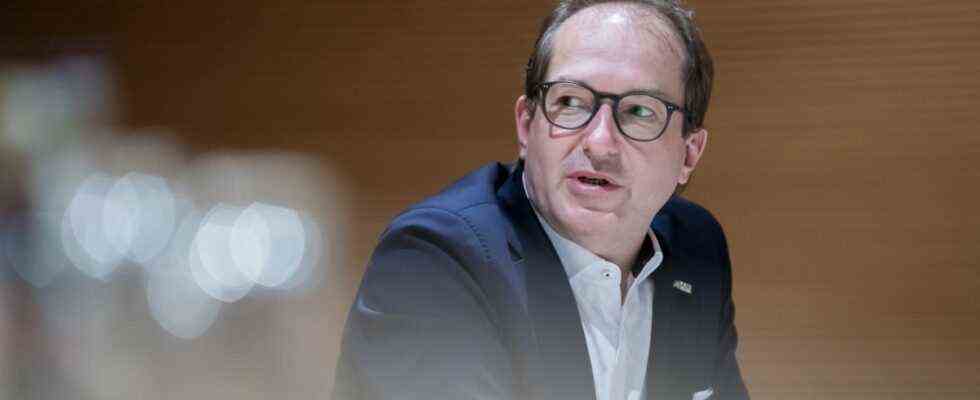The CSU has been part of the federal government for 16 years, during which time some MPs have become quite comfortable. Their own initiatives or the control of the government were not necessarily the focus of their activities; they lived in a symbiotic relationship with the Union-led ministries. Now it goes into the opposition. And the MPs have to learn how to do it.
The majority of his fellow MPs had not yet known how to put parliamentary questions, for example, says CSU regional group leader Alexander Dobrindt, and these questions were part of the MPs’ “toolbox” and “arsenal”.
Many in the CSU are only now realizing how hard life as a minority can be. So far nothing went against the Christian Socials, now they are suddenly the plaything of the others. The CSU wants to appoint a vice-president of the Bundestag again – but the new majority in parliament refused to do so. The FDP no longer wants to sit next to the AfD in the plenary hall, in their opinion the CSU and CDU should take their seats there in the future – and it is becoming apparent that the FDP will prevail. In addition, the CSU fears that the electoral reform called for in the first session of the Bundestag could also be at their expense.
Dobrindt would have expected more from the SPD, Greens and FDP
So the prospects are not rosy. Dobrindt, who experienced three years of opposition at the beginning of his career in the Bundestag, now says that it was “not always subject to amusement tax”, but “in large parts also depressing”. This is unlikely to change in the next few years.
One can already see now that the SPD, Greens and FDP “are exerting their new power impressively against the opposition parties,” says Dobrindt. At the beginning of an electoral term in particular, he would have expected a little more courtesy. In any case, he considers the way the future coalition partners will deal with the issues of the Bundestag Vice President and seating arrangements “not in good style”.
The idea behind the plan to change the seating arrangement was “inappropriate and completely inappropriate,” says the CSU regional group leader. One wants to “move the Union close to the AfD”. Dobrindt also considers the exclusion of the CSU from the Bundestag presidium to be “unfriendly”.
Since the founding of the Federal Republic of Germany, the CSU has almost always been allowed to appoint a vice-president, with Richard Stücklen even a president. Most recently, former Interior Minister Hans-Peter Friedrich was Vice President for the CSU. But this time the party did not get a move. Aydan Özoğuz (SPD), Yvonne Magwas (CDU), Claudia Roth (Greens), Wolfgang Kubicki (FDP) and Petra Pau (Left Party) were elected as deputies for the new Bundestag President Bärbel Bas (SPD). The AfD candidate did not receive the required majority.
The scolded are not impressed
Dobrindt does not consider the distribution of offices to be fair. He points out that the Union parties were only just behind the SPD in the Bundestag election, but that the Social Democrats are now significantly better represented in the Bundestag presidium. In addition, the ratio of government parliamentary groups to opposition parliamentary groups in the presidium will be four to two in the future. The three traffic light parties would only have received a good half of the votes in the federal election.
But the SPD, Greens and FDP are not impressed by Dobrindt’s lawsuit. They refer to the rules of procedure of the Bundestag, in which it says: “Each parliamentary group of the German Bundestag is represented by at least one vice-president in the presidium.” And the Union faction is represented by Yvonne Magwas. The rules of procedure would also allow two vice-presidents to be elected from the Union parliamentary group – but then the already large Bundestag presidium would be even larger.
Normally, the CSU benefits from the faction community with the CDU, but in this case, for once, it is disadvantageous.

